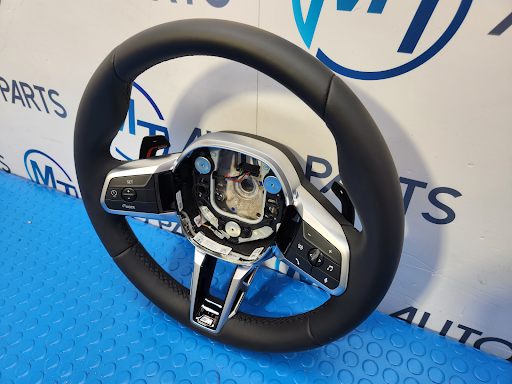The Vehicle Identification Number (VIN) is the fingerprint of any vehicle, essential for everyone from car enthusiasts to everyday drivers. This unique code holds the identity of a vehicle, including its history, manufacturer, and characteristics. VIN decoders are tools that unlock this information, transforming the encrypted strings into useful data. In this article, we will delve into what a VIN is, how VIN decoders work, and why they are indispensable in the automotive industry.
What is a Vehicle Identification Number (VIN)?
A VIN is a unique 17-character code assigned to every vehicle that rolls off the manufacturing line. This number is a complex blend of digits and capital letters that capture specific details about the vehicle. Instituted by the International Organization for Standardization (ISO) in 1981, the structure of the VIN is standardized globally, making it a universal identifier for vehicles.
Composition of the VIN
The VIN is structured into three distinct parts:
- World Manufacturer Identifier (WMI): The first three characters identify the vehicle’s manufacturer and the country of origin.
- Vehicle Descriptor Section (VDS): Characters four to nine detail the vehicle type, model, and engine type.
- Vehicle Identifier Section (VIS): The last eight characters provide information regarding the vehicle’s production year, the plant it was manufactured in, and its serial number.
How Does a VIN Decoder Work?
A VIN decoder is a tool that reads the encrypted information within the VIN and translates it into understandable data. This is particularly useful for verifying vehicle details before purchase, registration, or insurance.
The Decoding Process
VIN decoders operate by breaking down each section of the VIN based on a predefined set of rules related to each character. This process involves:
- Identifying the manufacturer: Decoders use the WMI to determine where and by whom the vehicle was made.
- Analyzing vehicle specifics: Through the VDS, decoders provide details about vehicle specifications like the model, body type, and engine size.
- Confirming authenticity and production details: The VIS helps confirm the vehicle’s authenticity and provides specific production details.
Tools and Technologies
Modern VIN decoders utilize advanced algorithms and databases to ensure accurate information. These tools can be accessed online or through mobile applications, and they often connect to national and international vehicle databases to fetch comprehensive details.
Importance of VIN Decoders
VIN decoders play a crucial role in various aspects of vehicle management and safety.
Vehicle Buyers
For buyers, a VIN decoder is a first line of defense against fraud. It allows buyers to verify the vehicle details provided by sellers, ensuring that the vehicle matches its records. This is crucial for checking a vehicle’s accident history, previous ownership, and maintenance records.
Law Enforcement
For law enforcement, VIN decoders are essential in tracking stolen vehicles. A VIN can reveal if a vehicle’s identity has been tampered with, helping to recover stolen vehicles more efficiently.
Regulatory Compliance
Manufacturers and regulatory agencies use VIN decoders to ensure compliance with safety standards. Recalls are also managed by tracking VINs, ensuring that affected vehicles are appropriately identified and fixed.
Future of VIN Decoding
With the advancement of technology, VIN decoding is becoming more sophisticated. Integration with blockchain technology could further enhance the security and verifiability of vehicle histories. Additionally, as electric vehicles and autonomous cars become more common, VIN decoders will evolve to accommodate new technologies and vehicle types.
Conclusion
VIN decoders are invaluable tools in the automotive industry. They enhance transparency, promote safety, and assist in regulatory compliance. As the automotive landscape evolves, so too will the capabilities and importance of VIN decoding. For anyone involved in buying, selling, or manufacturing vehicles, understanding and utilizing VIN decoders is essential. In essence, the VIN is much more than just a series of numbers and letters; it is a critical tool that ensures vehicles are safe, traceable, and correctly cataloged in the vast world of automotive transport. Whether you are a car enthusiast, a potential buyer, or someone involved in the regulatory aspects of automotive safety, the VIN and its decoders are your gateway to a wealth of vital information.






